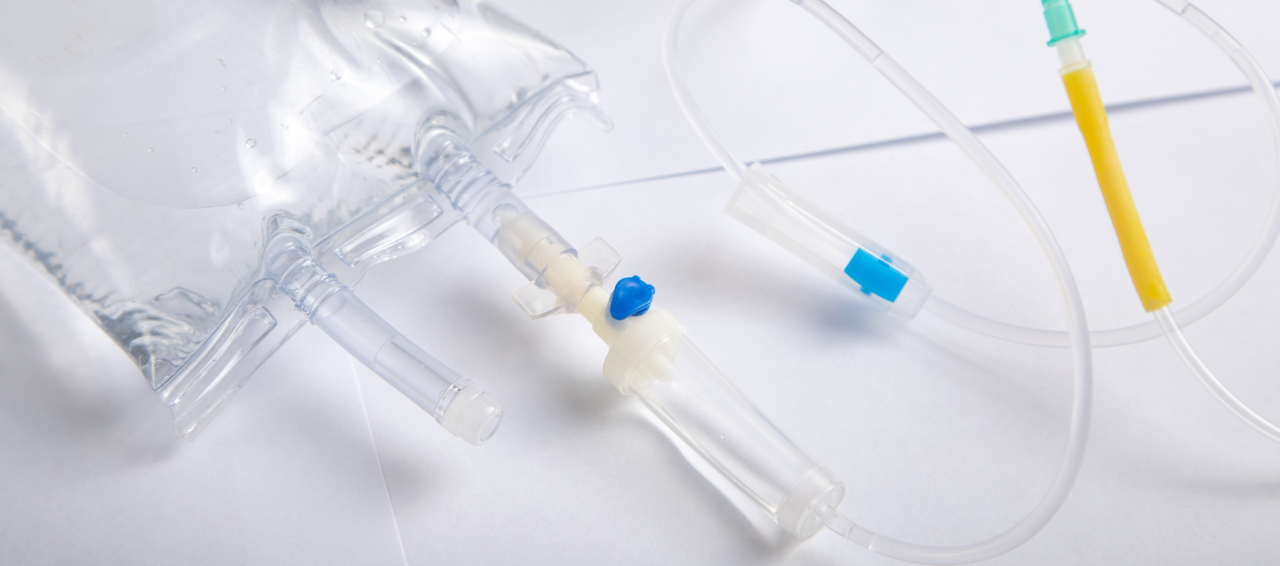Here's how RFID is revolutionizing the journey of a medical device, from source to surgery:
1. Manufacturing: What if you could track your medical devices at all stages of the supply chain, from source to surgery?
Imagine the power of tracking your medical devices seamlessly through every stage of the supply chain, from source to surgery. This vision becomes reality with RFID tagging at the point of manufacture, integrating RFID into the products packaging or label. By assigning a unique digital identifier to each device, RFID provides unparalleled traceability, allowing for real-time visibility into your supply chain and immediate detection of potential bottlenecks.
Data-driven decisions optimizes processes, streamlining workflows and enhancing efficiency, ultimately laying the groundwork for comprehensive traceability. Making Possible…
- Unique Identification: Uniquely identify every product.
- Real-time Visibility: Monitor your supply chain and identify potential bottlenecks.
- Improved Inventory Management: Reduce manual errors and minimize stock discrepancies.
- Strengthened Quality Control: Ensures compliance and supports continuous improvement.
- Counterfeit Prevention: Protects patient safety and brand reputation.
- Process Optimization: Enhanced workflows and efficiency.
2. Warehousing and Distribution: What if you could guarantee on-time delivery of critical medical devices?
Imagine streamlining coordination and communication with your supply chain partners and guaranteeing on-time delivery of critical medical devices. RFID makes warehousing and distribution more efficient by improving inventory accuracy and eliminating manual errors. Optimized storage maximises space, while efficient retrieval ensures quick access to needed items. Streamlined picking and packing reduce errors and improve on-time deliveries. Real-time data enables proactive stock management to avoid stockouts, and enhanced security deters theft and controls access to high-value items.
These improvements boost customer satisfaction and strengthen relationships with healthcare providers, ensuring vital medical supplies arrive exactly when needed. RFID turns the warehouse from a source of frustration into one of efficiency and accuracy, ensuring medical devices move seamlessly from manufacturer to provider, ready for patient care. Making Possible…
- Enhanced Inventory Accuracy: Eliminate manual errors and ensure accurate stock data.
- Optimized Storage: Space utilization and streamlined storage practices.
- Efficient Retrieval: Rapid and accurate retrieval of devices.
- Improved Picking & Packing: Streamlined processes and reduction in errors.
- On-Time Delivery: Accurate stock information facilitates timely deliveries.
- Prevention of Stockouts: Proactive stock management minimizes the risk of stockouts.
- Enhanced Security: Deter theft and control access to high-value devices.
- Improved Customer Satisfaction: Strengthens relationships with healthcare providers.
3. Hospital Inventory Management: What if you could ensure that every surgery has the right device, at the right time?
In hospitals, things can sometimes go wrong — a misplaced implant here, an expired catheter there. Now, imagine a hospital where every surgery runs smoothly, with the right device always available. This is made possible through RFID integration in inventory management. It saves healthcare staff time by automating tasks, letting them focus on patient care. Optimized stock management reduces waste and prevents stockouts, while expiration tracking ensures only in-date devices are used, boosting patient safety. Streamlined billing reduces errors, and accurate procedure costing improves cost analysis. RFID transforms hospital operations, delivering efficiency, safety, and precision at the point of care. Making Possible…
- Time & Cost Savings: Automate tasks and free up staff for patient care.
- Optimized Stock Management: Minimize stockouts and reduce waste.
- Expiration Management: Prevent the use of expired devices.
- Improved Safety: Ensure the use of approved and in-date devices.
- Streamlined Invoicing & Billing: Automate billing processes and reduce errors.
- Efficient Procedure Costing: Accurate tracking of device usage for cost analysis.
RFID: The Future of Medical Device Management
From source to surgery, RFID technology is transforming the medical device industry. By providing real-time visibility, improving efficiency, and enhancing patient safety, RFID is making it possible for medical device manufacturers to achieve a new level of control and transparency across the entire supply chain.
Ready to learn more? Discover how RFID technology can revolutionize your medical device operations. Reach out to us today!
- Attending LogiPharma in Lyon from April 8-10? Schedule a meeting with our team here.
- Unable to make it to the event? Feel free to contact me directly at benjamin.read@eu.averydennison.com.





